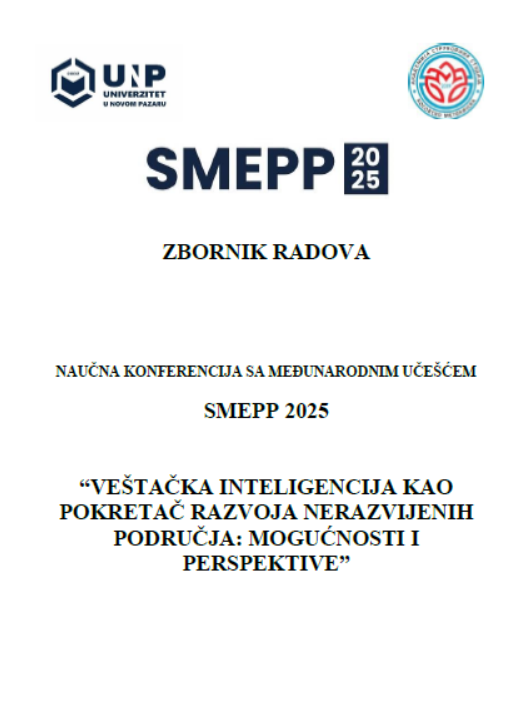ENHANCING SMALL AND MEDIUM ENTERPRISE PERFORMANCE THROUGH ARTIFICIAL INTELLIGENCE INTEGRATION IN ACCOUNTING
Keywords:
AI tools, accounting digitalisation, business enhancement, small and medium-sized enterprisesAbstract
This paper examines the degree of implementation of artificial intelligence (AI) tools within accounting information systems in small and medium-sized enterprises (SMEs) in Bosnia and Herzegovina, with the objective of identifying the perceived benefits, key barriers, and their effects on business performance. The research was conducted on a sample of 99 enterprises, utilising a structured questionnaire. Findings reveal that only 21.21% of enterprises currently employ AI tools in their accounting processes, while a mere 20% of respondents make use of advanced document management systems (DMS) or cloud-based solutions—technologies that facilitate integration with AI. The research highlights a generally positive attitude among respondents regarding the impact of AI application on SME operations. The highest average rating was attributed to the statement that AI enhances the efficiency of accounting processes (4.22), followed by improved quality of financial reporting (4.02) and more effective managerial decision-making (3.93), indicating a recognised added value of AI tools in the areas of analytics and decision support. The main obstacles to AI adoption, as identified by respondents, include a lack of knowledge and expertise (3.80) and insufficient regulatory framework (3.73). In terms of financial readiness to invest in AI technologies, 44.40% of enterprises indicated willingness to invest up to approximately EUR 500 annually, 37.40% between EUR 500 and 1,000, and only 18.20% more than EUR 1,000.
Overall, the findings suggest a significant, yet underutilised potential of AI tools in SME accounting, characterised by favourable user perceptions but constrained by educational, financial, and legislative limitations.
Published
Issue
Section
License
Copyright (c) 2025 Amra Gadžo, Nedžad Jupić (Author)

This work is licensed under a Creative Commons Attribution 4.0 International License.





